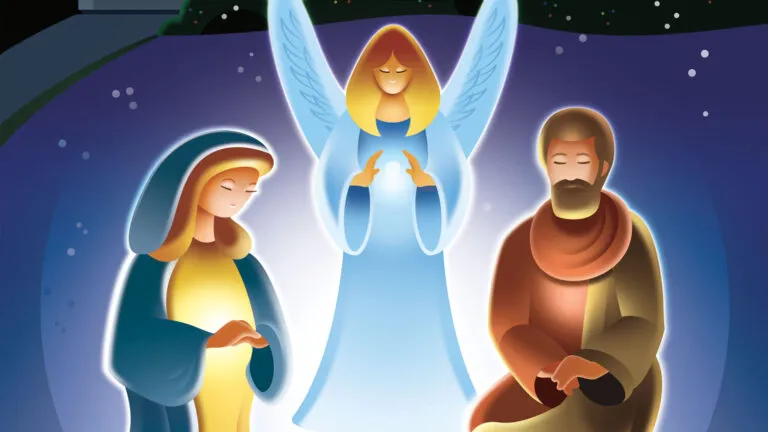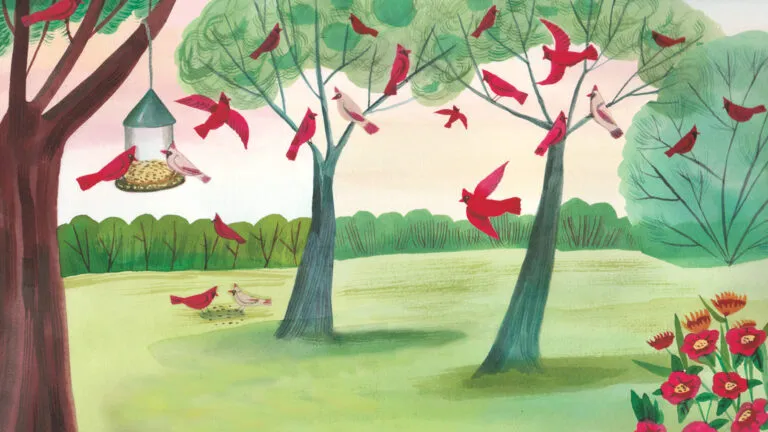I walked into the tag sale, excited to find a treasure. The first table I came upon was full of railroad memorabilia.
“Fantastic, aren’t they?” another early bird said, admiring some old Chesapeake and Ohio Railway calendars. “Are you a train buff too?”
“Not really,” I said. It was a complicated question. Trains had always been part of my life. My father worked for the Chesapeake and Ohio for most of his life. He wasn’t an engineer or a conductor or even a ticket seller. Daddy had a job few people even knew about: railroad telegraph operator. He relayed messages between the trains and the dispatcher, reporting the departures, arrivals, delays, and deliveries. The man at the table held up a picture of an old steam engine and grinned.
“I could write a whole book about the railroad,” he said.
Daddy was crazy about the railroad too. Every morning he left for the office in a wool cardigan with patch pockets, carrying a tin lunch box Mom packed for him. Telegraph operators didn’t get to wear a uniform, and Daddy’s “office” was a shack by the train line with an ancient hand-lettered sign that read h-o cabin—whatever that meant. But Daddy was there, every day, on time. He never even took a sick day. He wasn’t always so reliable at home. He couldn’t always give me the support or attention I needed. As an adult I’d come to understand that Daddy had problems he didn’t share with us. He was orphaned as a teenager, had to make it on his own, dropped out of school. But back then, all I knew was, he wasn’t who I needed him to be.
“Why do I have to go to school?” I remembered demanding one morning when studying had kept me up late the night before. “You never made it through junior high!”
“I most certainly did get through junior high, Roberta,” Daddy answered with a sly smile. “I walked right in the front door and straight through out the back. Now get ready and don’t forget your homework.”
I’d rolled my eyes at his joke. I didn’t appreciate Daddy’s humor then. It seemed as if he didn’t take anything seriously. No wonder he didn’t have the kind of job that required a degree or a suit. He just listened to crackly voices on an old rusted black crank phone and sent and received messages in Morse code. Tap, tap, tap. The job kept things
running. Even I could see that. But there was nothing special about being the person who did it.
“It’s a shame so many old train stations are disappearing,” the man said, admiring an old brass bell. “As much as I love collecting this stuff, I’d rather see it up and working.”
“That’s true,” I said.
I’d driven by to see Daddy’s old cabin in 2002. It was the day after he died of cancer, and the H-O cabin was being torn down. I was glad Daddy didn’t have to see the old rickety wooden sign in the rubble. He’d worked for that railroad for 42 years. The day I graduated from nursing school, Daddy ran to the ceremony straight from the job. He wore an oxford shirt and khakis while all the other men wore suits, and as he straightened my white cap he said, “I hope you enjoy your job as a nurse as much as I have mine on the railroad.”
It had taken decades, but I’d finally come to appreciate my blue-collar father. Maybe there was nothing special about being a telegraph operator, but it was necessary work and Daddy loved it.
“My father worked for the railroad,” I said to my new acquaintance. “Chesapeake and Ohio Railway. He was a telegraph operator at a place called H-O cabin.” “
You don’t mean it?” the man said. “Your father was J.R.? The telegrapher? I used to go to that cabin every chance I got to watch him work his magic. He was my hero!”
“Your hero?” Was this man sure he was talking about my father? “He wasn’t an engineer; he just sent messages on the telegraph machine.”
“Exactly!” the man said. “Those guys were right on the front lines, monitoring every train that passed. You never heard of train accidents back then. People took men like him for granted, but they saved a lot of lives, that’s for sure.”
He stopped himself as his enthusiasm drew the attention of everyone around us. Turned out Daddy had an admirer. A devoted fan! Not only had people taken Daddy for granted, but his own daughter had too.
“You know,” the man said more quietly, “when they tore the place down, I took that H-O cabin sign. It’s hanging in my living room. I took that big old phone too.” He sighed. “I would have loved to work that job myself one day. You must have been really proud of him.”
It was as if the message had been tapped out for me on a telegraph machine. Daddy wasn’t always the man I wanted him to be, but for so many he was just the man they needed. And I needed to hear that.





